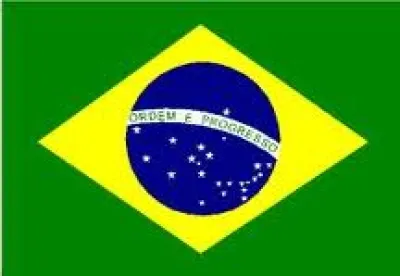Latin American Region Environmental Report, Volume I 2013
NATIONAL DEVELOPMENTS
Environmental Registry Revised; Re-Registration Required
All companies that conduct activities deemed to impact the environment in Brazil are obligated to register in the coming months to comply with IBAMA Normative Instruction No. 6 ("NI 6"), the revised regulation of the Federal Technical Registry of Potentially Polluting or Natural Resource Consuming Activities (Cadastro Técnico Federal de Atividades Potencialmente Poluidoras e Utilizadoras de Recursos Naturais; "CTF"). Companies required to register in the CTF are those that conduct potentially polluting activities and those that extract, produce, transport or sell either potentially hazardous products or products of flora or fauna. The categories of activities covered are listed in NI 6, Annex I. Following registration, the principal obligations of CTF registrants are submission of annual reports and, for many companies, payment of an annual environmental tax. The CTF is also linked to other environmental registries, including a corresponding state registry in São Paulo and the new National Registry of Hazardous Waste Operators (Cadastro Nacional de Operadores de Resíduos Perigosos).
Under NI 6, companies currently registered in the CTF are required to register again. The re-registration period opens July 1, 2013 and closes on different dates depending on a company’s status: September 30, 2013 for large companies and all that extract forest products; December 31, 2013 for medium-sized companies and non-philanthropic non-profit organizations; and February 28, 2014 for small companies and philanthropic organizations. Registration must be done through IBAMA’s services portal: http://servicos.ibama.gov.br/. Failure to register is subject to fine of up to R$9,000 (approximately US$4,500).
Brazil Establishes Registry of Hazardous Waste Generators and Operators
As anticipated in Brazil’s National Solid Waste Policy Law (No. 12305/2010), Normative Instruction No. 1/2013 ("NI 1"), published January 30, 2013, establishes a new National Registry of Hazardous Waste Operators (Cadastro Nacional de Operadores de Resíduos Perigosos; "CNORP"). The obligation to register in the CNORP applies to hazardous waste generators and "operators"; the latter category consists of companies that manage hazardous wastes, either as arrangers (destinadores; i.e., those who arrange for the disposition of hazardous wastes), storers, and transporters. NI 1 appears to limit the scope of the CNORP to those that generate or manage hazardous wastes while conducting certain activities, which are listed in an annex. The listings include a wide range of industries, such as mining, metallurgy, several types of manufacturing (e.g., chemicals, rubber, paper, electronics, and textiles), transport and storage of dangerous goods, and treatment and disposal of industrial wastes and other specified waste streams.
Registration in the CNORP is linked to registration in the existing Federal Technical Registry of Potentially Polluting or Natural Resource Consuming Activities (Cadastro Técnico Federal de Atividades Potencialmente Poluidoras e Utilizadoras de Recursos Naturais; "CTF"). (For recent revisions to the CTF, see "Brazil Revises Environmental Registry, Requires Re-Registration," article published in this newsletter.) The period for registration in the CTF and CNORP opens July 1, 2013 and lasts for three months for large companies, six months for medium-sized companies and eight months for small companies. Once registered in the CNORP, companies are required to submit an annual report on their waste generation and management activities, classifying wastes according to the new Brazilian Solid Waste List (Lista Brasileira de Resíduos Sólidos), which was issued in December 2012. CNORP registrants are also required to develop and submit a hazardous waste management plan.
Proposals for Reverse Logistics Programs for Electro-Electronic Products in Brazil
On February 13, 2013, Brazil’s Ministry of the Environment (Ministerio do Meio Ambiente) issued a public notice (the "Edital") requesting proposals for extended producer responsibility programs for electrical and electronic products "of domestic use" and their components. The Edital implements the "reverse logistics" (logística reversa) obligations of the National Solid Waste Policy Law (No. 12305/2010; the "Law"), requiring manufacturers, importers, distributors and retailers to take back and manage their end-of-life products. The Law’s principal implementing regulation (Decree No. 7404/2010) provides for reverse logistics systems to be established through "sectoral agreements" (acordos setoriais) that define the responsibilities of companies that participate in the distribution.
The Edital invites trade associations that represent companies in the affected sector to propose a plan to collect end-of-life electronics and appliances from consumers and reuse, recycle or otherwise ensure an environmentally adequate final disposition. Among the required elements of such proposals are two major quantitative targets that go into effect in the fifth year of program implementation: a collection network that covers all of Brazil’s cities of at least 80,000 inhabitants, with at least one collection point per 25,000 people, and annual collection of at least 17% of the volume of products sold in the year prior to establishment of the program. The deadline for submitting proposals is 120 days following publication of the Edital, or June 13, 2013.
BRAZILIAN STATE DEVELOPMENTS
São Paulo Proposes Revisions to Rules Governing Water Sanitation Systems
On March 15, 2013, São Paulo’s environmental enforcement agency, CETESB, posted for public comment three sets of proposed revisions to its water sanitation system regulations. The proposals are the result of a process intended to improve the management of water resources in a state that features South America’s largest metropolis and faces a growing demand for clean water. Three working groups were tasked with proposing changes to the State’s water legislation, and have issued the following recommendations:
"Proposal for Discipline of Non-Potable Direct Reuse of Water Coming from Sanitary Sewer System Treatment Stations for Urban Uses" (Proposta de Disciplinamento do Reuso Direto Não Potável de Água Proveniente de Estações de Tratamento de Esgoto Sanitário para Fins Urbanos)
"Proposals for Modification of the Decree 8468/1976 Annex on the Receipt of Non-Domestic Effluents in Sanitary Sewer Systems" (Propostas de Alteração do Anexo do Decreto 8.468/1976 sobre o Recebimento de Efluentes Não Domésticos em Sistemas de Esgotos Sanitários)
"Proposals for Simplification of Environmental Licensing Procedures for Sewer Elevation Stations" (Propostas de Simplificação de Procedimentos para o Licenciamento Ambiental de Estações Elevatórias de Esgoto)
The public consultation period ends May 12, 2013. Comments may be submitted through CETESB’s public consultation webpage: http://www.cetesb.sp.gov.br/institucional/consultas-publicas/140-consultas-publicas.
São Paulo Issues Coastal Ecological-Economic Zoning Regulation
On March 25, São Paulo Governor Geraldo Alckmin issued Decree No. 58996, "on the Ecological-Economic Zoning of the Baixada Santista" (sobre o Zoneamento Ecológico-Econômico do Setor da Baixada Santista) (the "Decree"), to regulate development in the coastal region adjacent to the City of São Paulo that includes the large shipping port, Santos. The Decree establishes five terrestrial and five marine zoning categories (Z1T – Z5T and Z1M – Z5M) that dictate the types of development and other activities allowed. Many of the zones are further divided into subzones: e.g., Z1TAEP, the Zone 1 Subzone of Terrestrial Specially Protected Areas (Subzona Áreas Especialmente Protegidas), and Z5MEP, the Zone 5 Subzone of Marine Port Expansion (Expansão Portuária). Each designation corresponds to the types and intensities of human use allowed: particularly construction in the terrestrial zones and fisheries in the marine zones. The compatibility of particular projects with the newly established zones will be determined in part through the environmental licensing process.




 />i
/>i

